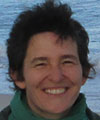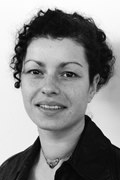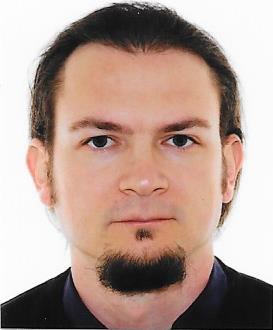Studying at the University of Verona
Here you can find information on the organisational aspects of the Programme, lecture timetables, learning activities and useful contact details for your time at the University, from enrolment to graduation.
Academic calendar
The academic calendar shows the deadlines and scheduled events that are relevant to students, teaching and technical-administrative staff of the University. Public holidays and University closures are also indicated. The academic year normally begins on 1 October each year and ends on 30 September of the following year.
Course calendar
The Academic Calendar sets out the degree programme lecture and exam timetables, as well as the relevant university closure dates..
| Period | From | To |
|---|---|---|
| Sem. 1A | Sep 26, 2022 | Nov 5, 2022 |
| Sem. 1B | Nov 14, 2022 | Dec 23, 2022 |
| Sem. 2A | Feb 13, 2023 | Mar 30, 2023 |
| Sem. 2B | Apr 11, 2023 | May 27, 2023 |
| Session | From | To |
|---|---|---|
| Sessione Invernale | Jan 9, 2023 | Feb 11, 2023 |
| Sessione Estiva | Jun 5, 2023 | Jul 22, 2023 |
| Sessione Autunnale | Aug 28, 2023 | Nov 23, 2023 |
| Sessione straordinaria invernale | Jan 8, 2024 | Feb 17, 2024 |
| Session | From | To |
|---|---|---|
| Sessione Estiva | Jul 10, 2023 | Jul 15, 2023 |
| Sessione Autunnale | Nov 6, 2023 | Nov 11, 2023 |
| Sessione invernale | Apr 2, 2024 | Apr 8, 2024 |
| Period | From | To |
|---|---|---|
| Festa di Ognissanti | Nov 1, 2022 | Nov 1, 2022 |
| Festività Della Immacolata Concezione | Dec 8, 2022 | Dec 8, 2022 |
| Vacanze natalizie | Dec 24, 2022 | Jan 8, 2023 |
| Vacanze di Pasqua | Apr 7, 2023 | Apr 10, 2023 |
| Festa della Liberazione | Apr 25, 2023 | Apr 25, 2023 |
| Festa del lavoro | May 1, 2023 | May 1, 2023 |
| Festa del Santo Patrono | May 21, 2023 | May 21, 2023 |
| Festa della Repubblica | Jun 2, 2023 | Jun 2, 2023 |
| Chiusura estiva | Aug 14, 2023 | Aug 19, 2023 |
Exam calendar
Exam dates and rounds are managed by the relevant Humanistic Studies Teaching and Student Services Unit.
To view all the exam sessions available, please use the Exam dashboard on ESSE3.
If you forgot your login details or have problems logging in, please contact the relevant IT HelpDesk, or check the login details recovery web page.
Should you have any doubts or questions, please check the Enrollment FAQs
Academic staff
 carlo.callegaro@univr.it
carlo.callegaro@univr.it
 piergiorgio.reggio@univr.it
piergiorgio.reggio@univr.it
Study Plan
The Study Plan includes all modules, teaching and learning activities that each student will need to undertake during their time at the University.
Please select your Study Plan based on your enrollment year.
1° Year
| Modules | Credits | TAF | SSD |
|---|
2° Year activated in the A.Y. 2023/2024
| Modules | Credits | TAF | SSD |
|---|
1 MODULE TO BE CHOSEN BETWEEN THE FOLLOWING| Modules | Credits | TAF | SSD |
|---|
| Modules | Credits | TAF | SSD |
|---|
1 MODULE TO BE CHOSEN BETWEEN THE FOLLOWING| Modules | Credits | TAF | SSD |
|---|
Legend | Type of training activity (TTA)
TAF (Type of Educational Activity) All courses and activities are classified into different types of educational activities, indicated by a letter.
Longlife Learning Psychology (2022/2023)
Teaching code
4S007376
Academic staff
Coordinator
Credits
12
Language
Italian
Scientific Disciplinary Sector (SSD)
M-PSI/06 - WORK AND ORGANIZATIONAL PSYCHOLOGY
Period
Sem. 1A, Sem. 1B
Learning objectives
This course provide a systematic introduction to theories and techniques relating to adult education and training, using lectures and practical exercises based on the literature and industry experience. Students are involved in workgroups and group discussions in the role of trainees and in the role of trainers/facilitator, to gain an appreciation of the skills required. By the end of the course students will be able to: - know theories and models related to lifelong learning; - know and to know how to apply the methods and techniques for the analysis of training needs and desires; - know the specificity of the methods and techniques delivered in the case of lifelong learning; - know how to apply some specific methods and techniques delivered in the case of lifelong learning; - know and to know how to detect the main models for the management of the classroom; - know and to know how to apply the methods and techniques of assessment of the training results.
Prerequisites and basic notions
Notions of Work and Organizational Psychology and Training Psychology.
Program
The course will deal with the following subjects:
- Training and lifelong learning: relationships, similarities and differences;
- Lifelong learning and professional vocation: learning in adults;
- Job placement: which characteristics increase the employability of unemployed;
- Theories of professional vocation: from traits to contexts to the interaction between the two of them;
- Learning and organizational cultures: which training for which organization;
- Psychosocial training and transactional analysis: the group and the relationships among individuals as a method and a purpose of the lifelong leaning.
Bibliography
Didactic methods
Teaching is held in person through lectures conducted with the support of video projection, classroom readings, case studies and exam examples.
Learning assessment procedures
The exam is written and based on the deepened study of the texts. The written task comprises a certain number of open questions and closed questions so that the students can prove their preparation and the teacher can base his marks on a wide and representative sample of knowledge. I do not use a rigid and structured form of written exam, meaning that the closed questions sometimes are present and sometimes are not. The open questions are always present, generally in the number of 3. I generally give 10 points to each open question, so that the sum is 30. The "laude" depends on the way the students offer their answers, on the extent to which they are full and deep, and on the way the students show they are able to sustain some of their personal points of view. During the course, some examples of written tasks are shown so that the students can have an idea of the kind of task they are going to deal with for their exam.
Evaluation criteria
The first evaluation criterion concerns the demonstrated learning by students of the concepts and contents of the subject, those present in the study material. If students just demonstrate this, their grade will fluctuate between 18 and 21.
The second evaluation criterion concerns the demonstrated ability on the part of students to connect notions and contents to each other and to produce an articulated and reasoned speech with respect to what is asked. If students prove this, their grade will fluctuate between 22 and 26.
The third and final evaluation criterion concerns the demonstrated ability of students to apply intelligently and creatively (which does not mean either imaginative or utopian) what they have learned to real cases of professional training and development in order to achieve real and concrete learning goals, change, well-being, etc. If students prove this, their grade will fluctuate between 27 and 30.
Laude is reserved for those who produce a perfect written assignment in every part that communicates learning, connections, critical thinking and the ability to apply all this to real cases.
I conclude by saying that the grammatical and stylistic correctness with which students offer their answers to the questions also contributes to the final grade.
Criteria for the composition of the final grade
See above
Exam language
Italiano
Type D and Type F activities
I 9 crediti liberi a scelta dello studente (ambito “D”) hanno lo scopo di offrire allo studente la possibilità di personalizzare il proprio percorso formativo permettendo di approfondire uno o più argomenti di particolare interesse legati al proprio percorso accademico.
Per garantire questo fine, si invitano gli studenti a rispettare le seguenti indicazioni per il completamento di tale ambito:
- almeno un’attività formativa erogata come esame universitario (con relativo voto in trentesimi) selezionato tra le attività del proprio piano non seguite in precedenza o fra gli insegnamenti dei CdLM del Dipartimento di Scienze Umane;
- massimo 6 cfu relativi a competenze linguistiche (oltre a quelli previsti dal PdS);
- massimo 6 cfu relativi a competenze informatiche (oltre a quelli previsti dal PdS);
- massimo 4 cfu di tirocinio, (oltre a quelli previsti dal PdS);
- massimo 6 cfu di attività laboratoriale/esercitazioni (compresi quelli previsti nei PdS per l’ambito) di regola viene riconosciuto 1 cfu ogni 25 ore di attività;
- massimo 6 cfu di attività seminariale/convegni/cicli di incontri/formative in genere (sia accreditata dal Dipartimento di Scienze Umane che extrauniversitaria) – di regola viene riconosciuto 1 cfu ogni 8 ore di partecipazione e/o 2 giornate salvo diversamente deliberato;
- non vengono valutate attività svolte in Erasmus non inserite nei Learning Agreement.
Altre informazioni sono reperibili nella Guida per i crediti liberi che è possibile trovare quì.
COMPETENZE TRASVERSALI
Scopri i percorsi formativi promossi dal Teaching and learning centre dell'Ateneo, destinati agli studenti iscritti ai corsi di laurea, volti alla promozione delle competenze trasversali:
https://talc.univr.it/it/competenze-trasversali
| years | Modules | TAF | Teacher |
|---|---|---|---|
| 1° 2° | Learning and communication in educational settings: planning of interventions | D |
Daniela Raccanello
(Coordinator)
|
| 1° 2° | EXPOSED BODIES - Diotima seminar | D |
Rosanna Cima
(Coordinator)
|
| 1° 2° | Human Resources Functions (2022/2023) | D |
Andrea Ceschi
(Coordinator)
|
| 1° 2° | Interventi di comunita': tecniche per la risoluzione relazionale dei conflitti | D |
Anna Maria Meneghini
(Coordinator)
|
| 1° 2° | Neuropsychology Laboratory | D |
Valentina Moro
(Coordinator)
|
| 1° 2° | The individual and organizational assessment : a guide to the main psychological tests | D |
Barbara Giacominelli Gasbarro
(Coordinator)
|
| 1° 2° | Being and well-being in the workplace: promoting organizational well-being starting from the prevention of psychosocial risks. | D |
Riccardo Sartori
(Coordinator)
|
| 1° 2° | Summer school: human sciences and society - (HSAS) – 2022/2023 | D |
Federica De Cordova
(Coordinator)
|
| years | Modules | TAF | Teacher |
|---|---|---|---|
| 1° 2° | Business English for everybody | D |
Manuel Boschiero
(Coordinator)
|
| 1° 2° | Russian for everybody | D |
Maria Gabriella Landuzzi
(Coordinator)
|
| years | Modules | TAF | Teacher |
|---|---|---|---|
| 1° 2° | APsyM workshop on quantitative data analysis | D |
Margherita Brondino
(Coordinator)
|
| 1° 2° | Work and Organizational Psychology (WOP) focus groups | D |
Riccardo Sartori
(Coordinator)
|
| years | Modules | TAF | Teacher |
|---|---|---|---|
| 1° 2° | Interventi e tecniche per lo sviluppo di comunita' | D |
Anna Maria Meneghini
(Coordinator)
|
| 1° 2° | APsyM workshop on quantitative data analysis | D |
Margherita Brondino
(Coordinator)
|
| 1° 2° | Mindfulness and nature. Feeling better at work. Nature-based mindfulness practices for coping with stress in the workplace | D |
Margherita Pasini
(Coordinator)
|
| 1° 2° | University and DSA: Methods and strategies for studying and studying at university | D |
Ivan Traina
(Coordinator)
|
| 1° 2° | Work and Organizational Psychology (WOP) focus groups | D |
Riccardo Sartori
(Coordinator)
|
| years | Modules | TAF | Teacher |
|---|---|---|---|
| 1° 2° | Ethics in psychology | D |
Elena Trifiletti
(Coordinator)
|
| 1° 2° | The Talks of EThoS Research Centre | D |
Carlo Chiurco
(Coordinator)
|
Career prospects
Module/Programme news
News for students
There you will find information, resources and services useful during your time at the University (Student’s exam record, your study plan on ESSE3, Distance Learning courses, university email account, office forms, administrative procedures, etc.). You can log into MyUnivr with your GIA login details: only in this way will you be able to receive notification of all the notices from your teachers and your secretariat via email and soon also via the Univr app.
Graduation
Documents
| Title | Info File |
|---|---|
|
|
pdf, it, 99 KB, 13/10/23 |
|
|
pdf, it, 101 KB, 10/04/24 |
List of theses and work experience proposals
Student mentoring
Gestione carriere
Linguistic training CLA
Practical information for students
Documents
| Title | Info File |
|---|---|
|
|
pdf, it, 325 KB, 02/05/23 |
|
|
pdf, it, 212 KB, 02/05/23 |
|
|
pdf, it, 131 KB, 02/05/23 |
Stage e Tirocini
Lo/a studente/essa tirocinante curricolare sarà chiamato/a svolgere, presso gli Enti che lo ospitano, attività che prevedono competenze associate alla figura professionale dello Psicologo, in particolare lo Psicologo per la formazione, e nello specifico:
- attività di progettazione, realizzazione e valutazione dell’efficacia di interventi di percorsi formativi, nonché attività volte alla facilitazione dell'apprendimento nel ciclo di vita, in particolare in contesti organizzativi;
- attività che prevedano l’analisi delle relazioni interpersonali, dei contesti organizzativi e delle pratiche lavorative;
- attività che prevedano la gestione di processi organizzativi complessi, per lo sviluppo e la valorizzazione delle persone all'interno delle organizzazioni;
- attività di progettazione, realizzazione e valutazione di interventi psicologici volti all’orientamento scolastico e professionale;
- attività che prevedono l’uso di tecniche e strumenti di analisi delle situazioni e dei contesti, di raccolta di informazioni, e di interpretazione dei risultati, principalmente in relazione ai contesti organizzativi.
Tali attività si svolgono in Aziende ed Enti accreditati presso l’Ateneo. Lo/la studente/essa sarà seguito da un tutor accademico e da un tutor aziendale. Alle attività di tirocinio sono attribuiti n. 9 CFU (pari a 225 ore).
Linee Guida per lo Svolgimento dei Tirocini Curriculari
- Tutte le informazioni in merito agli stage per futuri studenti sono disponibili alla pagina Stage e tirocini.
- Tutte le informazioni in merito agli stage per studenti iscritti sono pubblicate in MyUnivr - come fare per - stage e tirocini.
- Tutte le informazioni in merito agli stage per le aziende sono disponili alla pagina Stage e tirocini per azienze.

 +39 045802 8405
+39 045802 8405



















